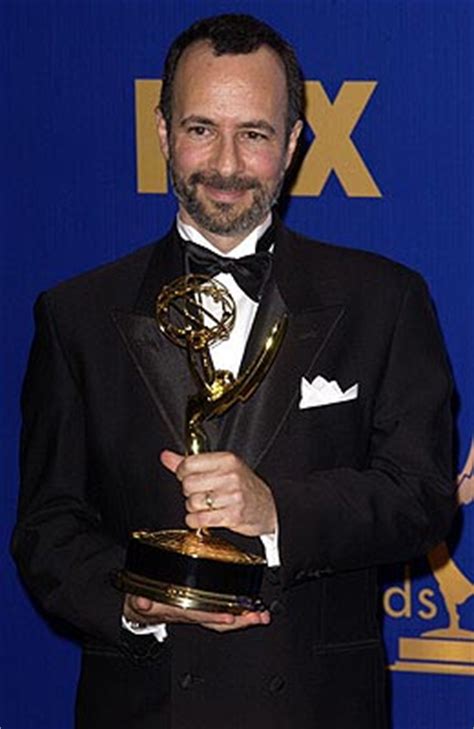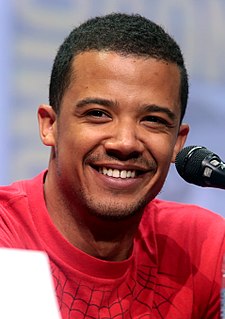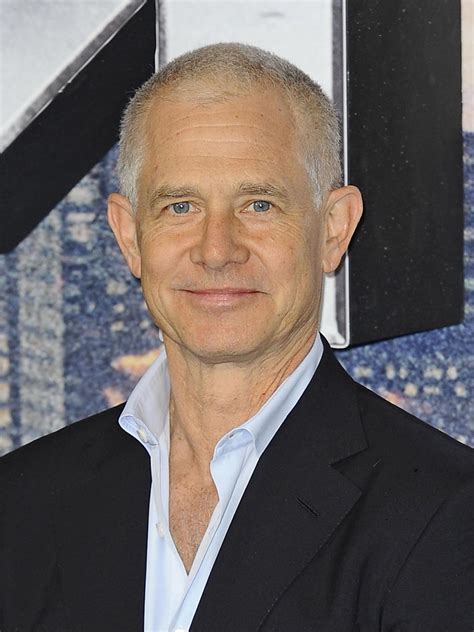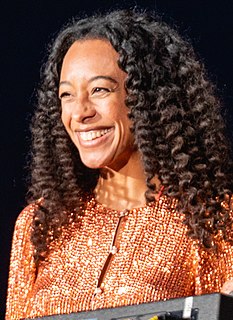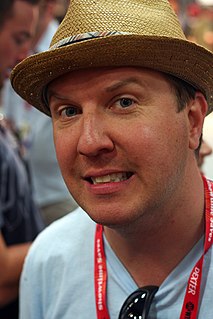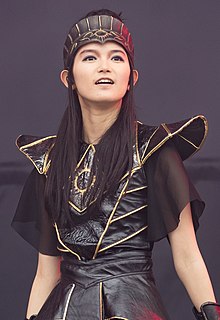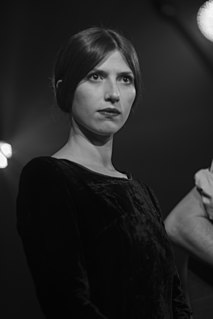A Quote by Sarah Silverman
I like my messiness on stage, though I watch comics who come at a joke from every angle and I think, 'Yeah! That's how it's done!' But for me it's the audience. If I feel connected to them, I have so much fun, and if not, it stinks.
Related Quotes
I think Amy Poehler and Tina Fey have done so much for women in comedy in the sense that they've normalized it. You don't think, 'I'm going to watch that comedy starring a woman,' you think, 'I'm going to watch that funny show.' They refuse to play the foils for men, or be reduced to the butt of every joke, and I love that about both of them.
I think one of the things that is important, for me, though a lot of people would disagree with me, is that you be founded in theater so that you understand what an audience is, what kind of an animal it is and how to play with it. How to have fun with it, how to sympathize with it, all the things that an audience is. I don't think you're going to find that out unless you do theater.
I think you do have to attend to the sort of core values of film, which is that the audience wants to have a relationship with the characters, they want to understand what's going on there. There are certain things that comics can have a little bit more freedom in then when you're asking an audience to engage in it as a piece of cinema, but I do feel like the canvas is much bigger and wider and that we're being invited and frankly challenged to take risks, to be a little bit different. And that's fun, that's exciting.
I was always pretty broad. I've had a couple bad experiences. One time, I showed up late for a gig in Brooklyn at an Italian restaurant. I ran on stage, did my show, and then some guy in the audience threatened to kill me because he didn't like my joke. Instead of talking to him, I just ran off stage. And then, because I was late, the owner of the restaurant threatened to kill me. And I was 19 years old and so scared that I almost started crying. But, I've done every gig you can imagine, in every state.
For me, every time I step on the stage it feels like a battle is about to start. It's not like we're going on stage to fight against our audience obviously, because for me, when I go on stage, I'm always trying to reach a new level of how am I going to make today a great night for everyone that's present.
I can feel how an audience is reacting when I'm on a stage, but when you are on stage, your perception is distorted. That's something you just have to know. It's like pilots that fly at high Gs and they lose, sometimes, consciousness and hand/eye coordination and they just have to know that that's going to happen. They have to be trained to not try to do too much while they are doing that. So when you are on stage, you have to be aware that you are wrong about how it feels a lot of times.
Watch out for music. It should come with a health warning. It can be dangerous. It can make you feel so alive, so connected to the people around you, and connected to what you really are inside. And it can make you think that the world should, and could, be a much better place. And just occasionally, it can make you very, very happy.



